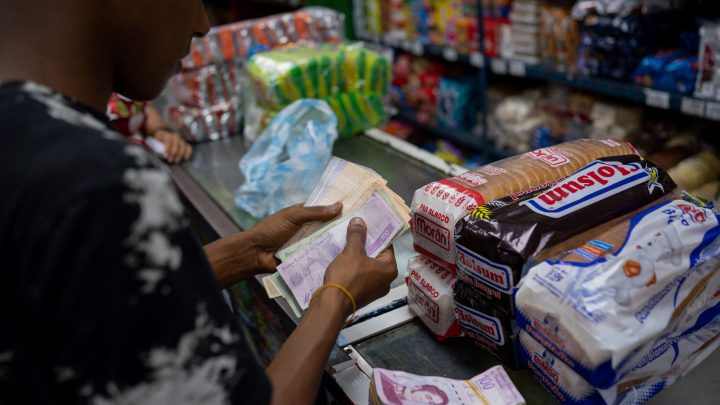
Venezuela’s 360% inflation fuels migration, poverty

This story was produced by our colleagues at the BBC.
It wass midafternoon in the Venezuelan city of Merida, and restaurants were clearing up after the lunchtime rush. There are finally signs of recovery after years of economic chaos.
For hotel owner Wilson Melina, business has picked up slightly this year — but not enough for his family to get by. “One job alone doesn’t work,” he said.
“You have to do something else, something different, to have enough money,” he added.
He recently exchanged his van for a small plot of land, where he raises goats to sell and breeds rabbits for his family to eat.
“The circumstances led me to eat this. Breeding rabbits is cheaper than chickens,” he said.

Venezuela was once South America’s richest nation. But an oil price collapse in 2013, economic mismanagement and corruption led to a collapse, which was then exacerbated by U.S. sanctions.
Almost 8 million Venezuelans have left their country — around a quarter of the population, with increasing numbers heading for the United States.
Inflation has come down significantly in the last two years, but at 360%, it’s still the highest in the world. Milk costs between $3 and $4, while a liter of cooking oil is about $4. That’s the same as the minimum monthly wage for a public-sector worker.
Jessica Quintero, a nurse, said many of her colleagues left Venezuela because of the low wages. She thinks about leaving too but is worried about her family.
“It’s crazy to emigrate with children,” she said.
“There’s no one left to work,” she added. “Who’s going to look after people? You have to look for extra jobs to look after yourself. I have to go out to sell vegetables, raw milk.”
Around half the population lives in poverty.
Angel Alvarado, an economist and founder of the Venezuelan Finance Observatory — an independent organization that monitors the country’s economy — thinks it’s still in crisis.

“The situation is very bad for ordinary people. It’s chaos for the economy. The collapse of the state, of the oil industry, the human capital that has left the country,” he said.
For many older Venezuelans hoping to retire, like 75-year-old driver Jose Lobo, stopping work isn’t an option. The state pension is now just $4 a month.
“I don’t earn enough to look after my home, for food. I don’t have the financial means for any enjoyment. I used to go on holiday each year,” he said.

Retirement for Lobo — and many others — is now a far off dream. But Alvarado hopes the recent relaxation of U.S. sanctions ahead of the 2024 presidential elections in Venezuela could help.
“I think the economy could grow for the next year, and the most important impact is maybe a reduction in inflation,” he said.
Alvarado said this, along with increasing oil investment, could lead to some level of economic recovery. Perhaps people like nurse Jessica Quintero won’t have to leave.
There’s a lot happening in the world. Through it all, Marketplace is here for you.
You rely on Marketplace to break down the world’s events and tell you how it affects you in a fact-based, approachable way. We rely on your financial support to keep making that possible.
Your donation today powers the independent journalism that you rely on. For just $5/month, you can help sustain Marketplace so we can keep reporting on the things that matter to you.











